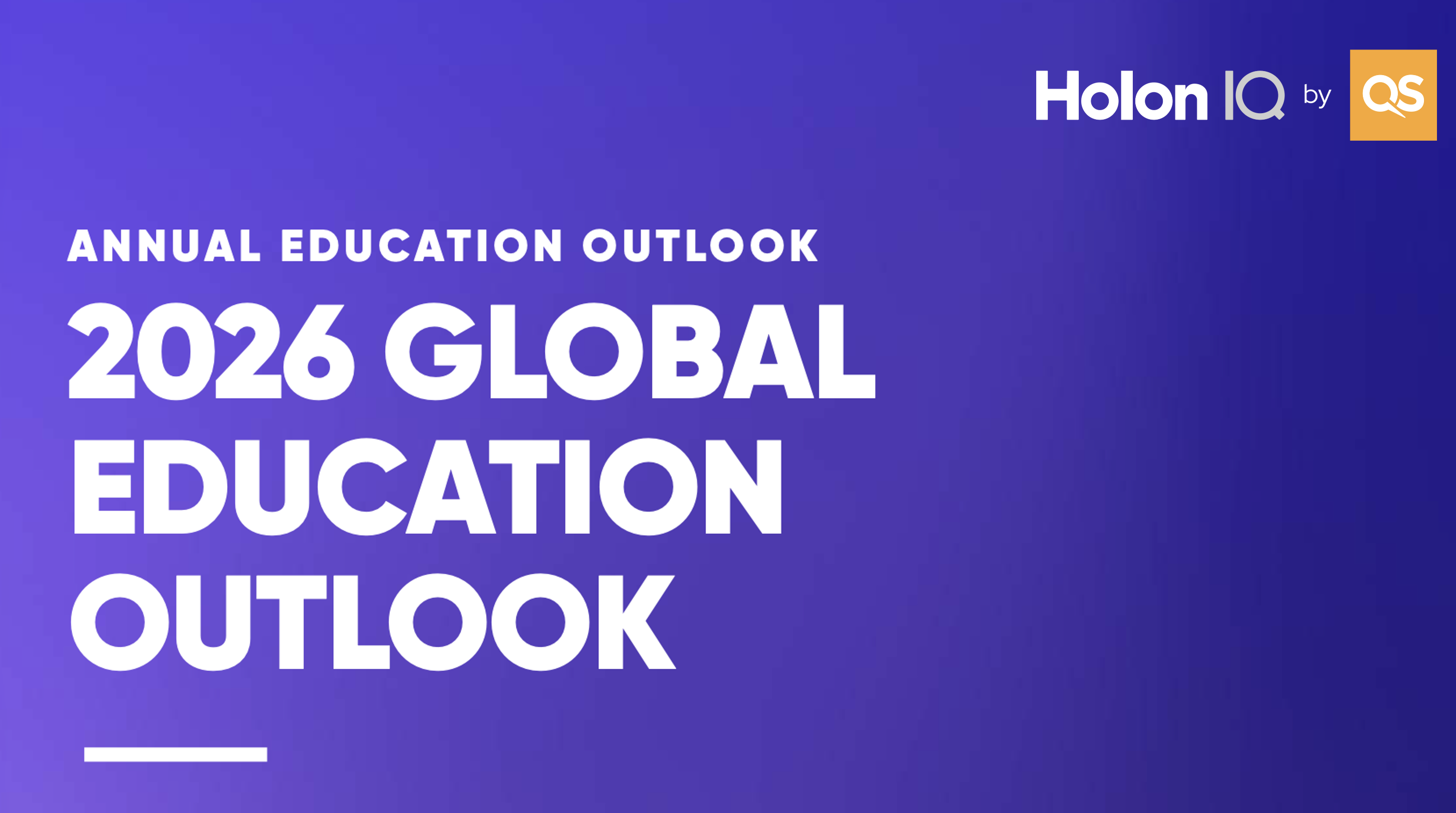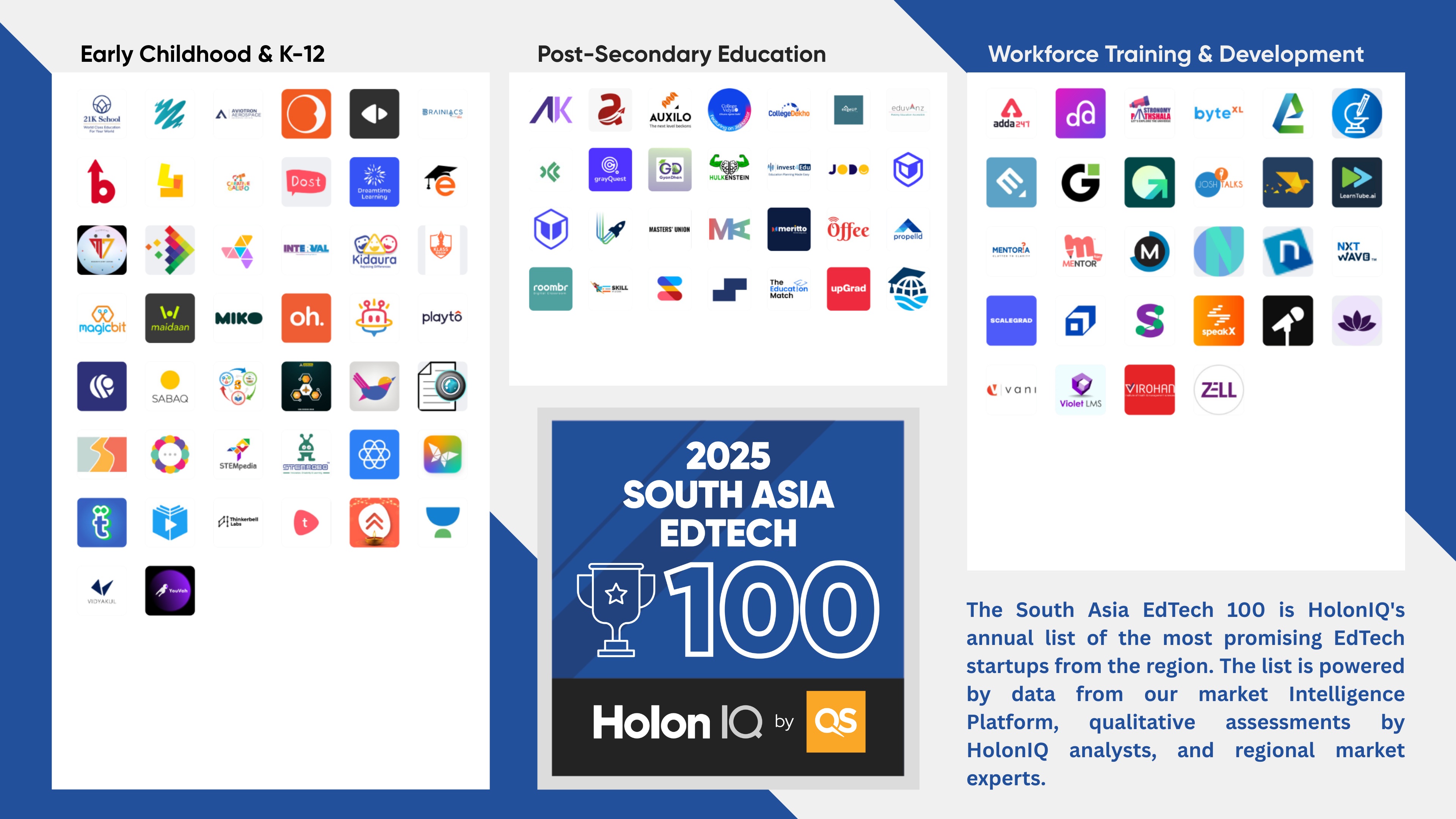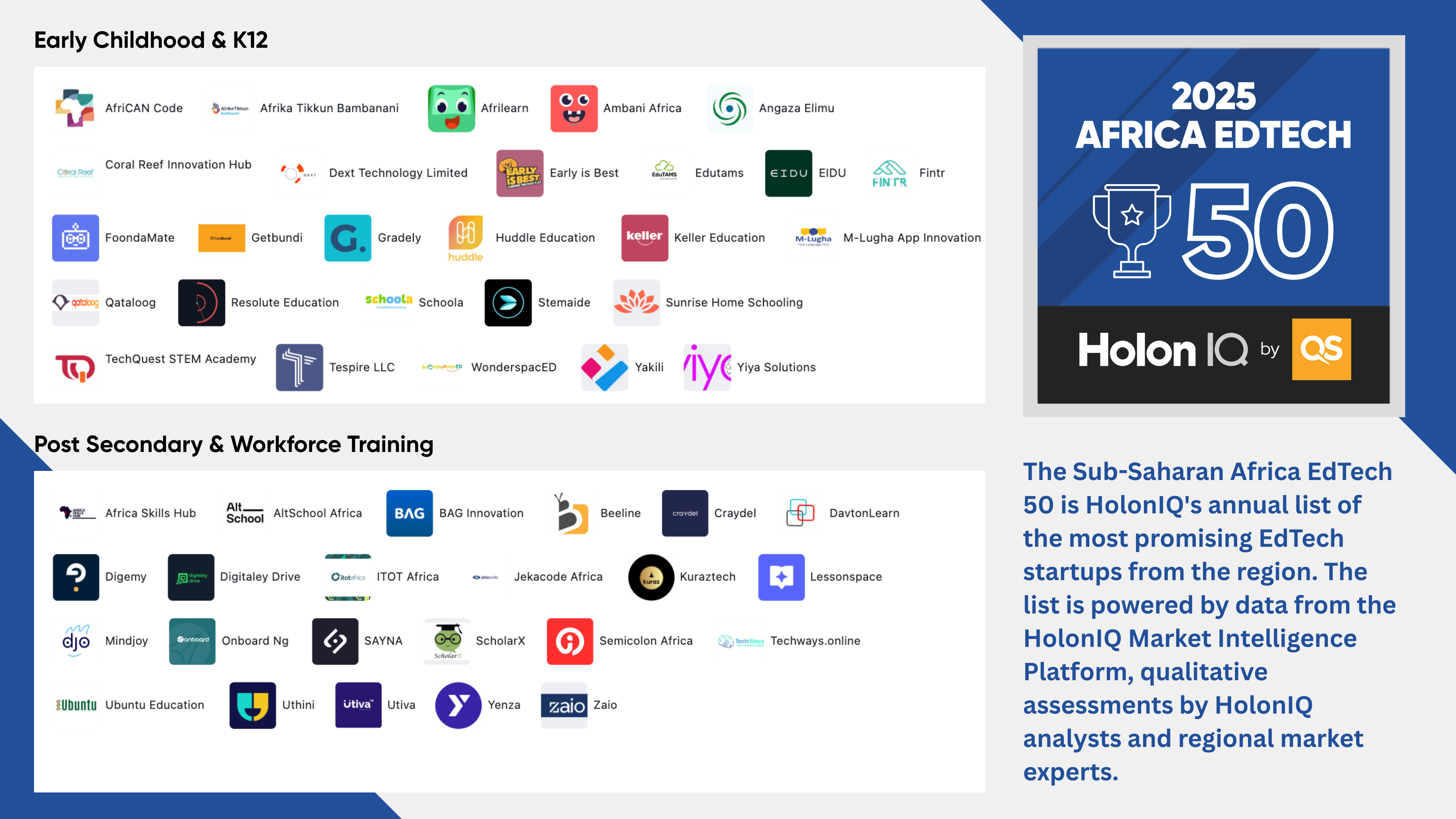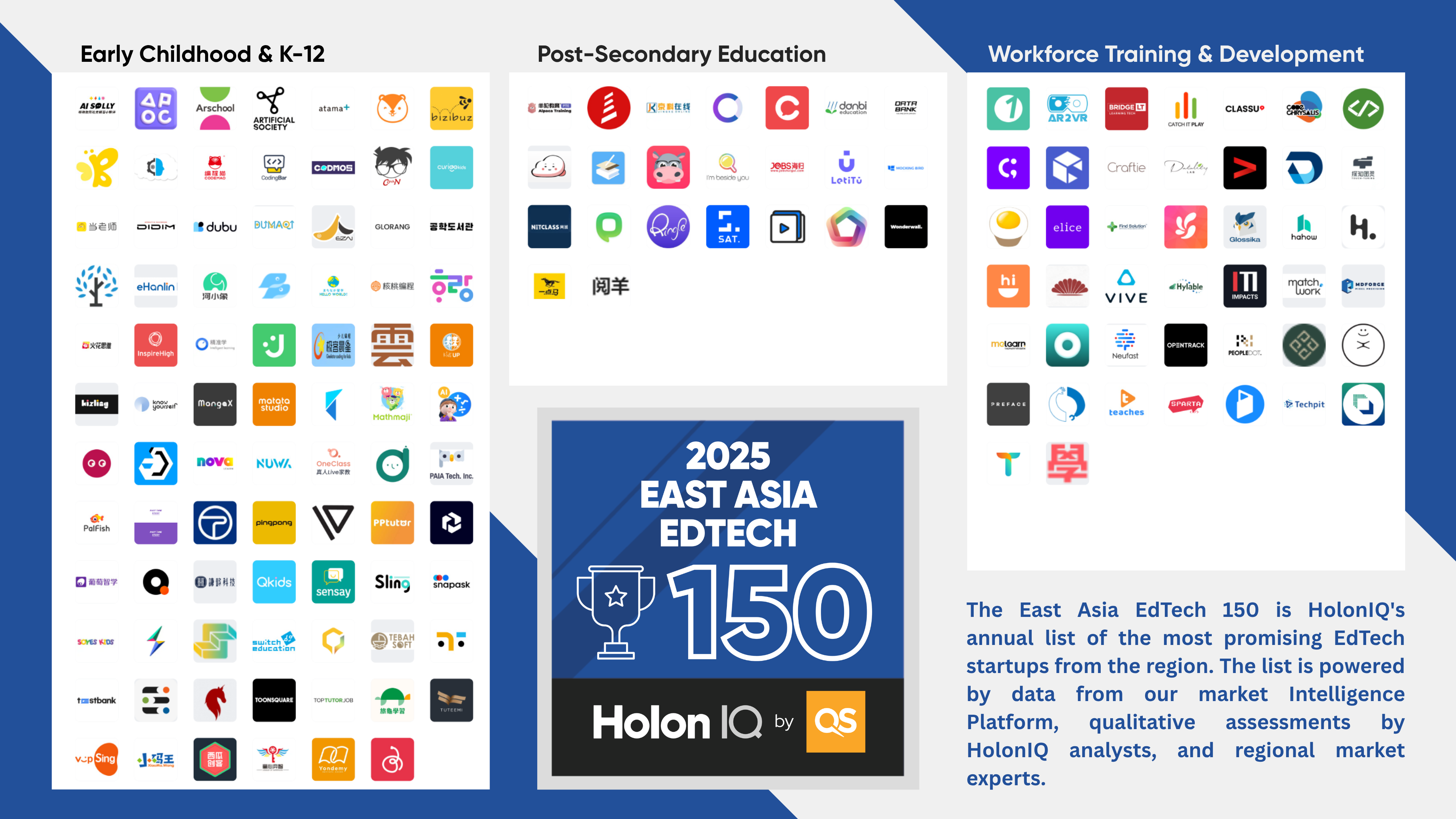Holistic AI Adoption: From Classroom to Systems
The first quarter of 2025 saw AI adoption advance across all sectors, from early learning to workforce training, shifting from pilot programs to embedding into core infrastructure. Governments and institutions are prioritizing workforce readiness, channeling investments into cybersecurity, semiconductor talent, and simulated learning—and global higher education leaned harder into industry-aligned credentials and international expansion, with EdTechs playing a central role in scaling access, skills, and student recruitment. Directionally, education is moving toward a skills-first, tech-enabled future—though efforts continue to ensure equity, quality, and human-centered learning keep pace. Check out the updated AI in K12 Market Map

Higher Ed Doubles Down on Workforce Alignment
Universities are actively linking education to employment. Partnerships with tech firms are accelerating digital transformation, while demand for industry-aligned programs (FinTech, cybersecurity, AI) continues to grow. Micro-credentials and virtual apprenticeships are no longer edge cases; they’re core strategy. From Nigeria to South Korea, higher education is leaning into digital credentials and work-integrated models to meet the new currency of the skills economy.
The STEM + AI Equation: Momentum Without Scale (Yet)
Investors have their eye on AI-powered learning tools, especially in STEM and coding. New funding, product launches, and global pilots, from Kazakhstan’s CodiPlay to Canada’s MindFuel, signal investor interest, but scale remains a hurdle. Measurable outcomes and curriculum integration still remain to be seen and many of the investments are with early stage organizations. Until then, expect experimentation to continue, especially in emerging markets where the appetite for tech-enabled learning is supported by leadership.
Skills In Perspective: Global Up-skilling Investment Grows, with Digital at the Forefront
Over $500B in up-skilling and re-skilling initiatives were announced globally in the past year, with $470B focused on Digital & AI skills—highlighting a clear global pivot toward tech-driven economies. North America and Europe lead investments, though contributions span all regions. Sectors like Health, Green, and Advanced Manufacturing saw relatively modest funding, signalling an urgent global priority on digital capabilities over other emerging skill areas.


















